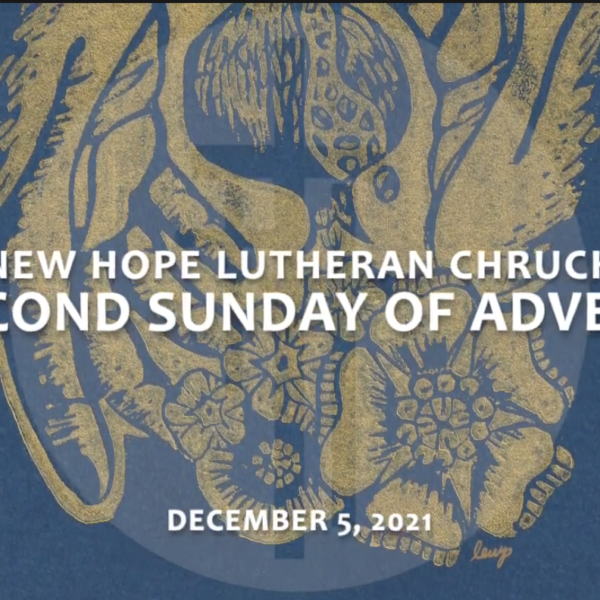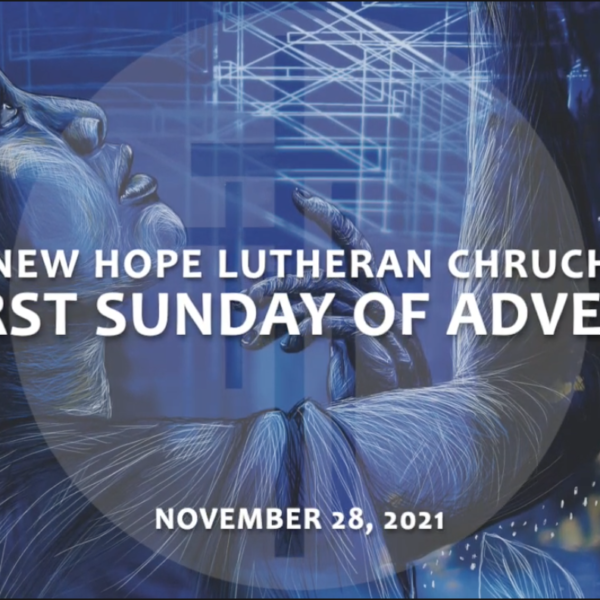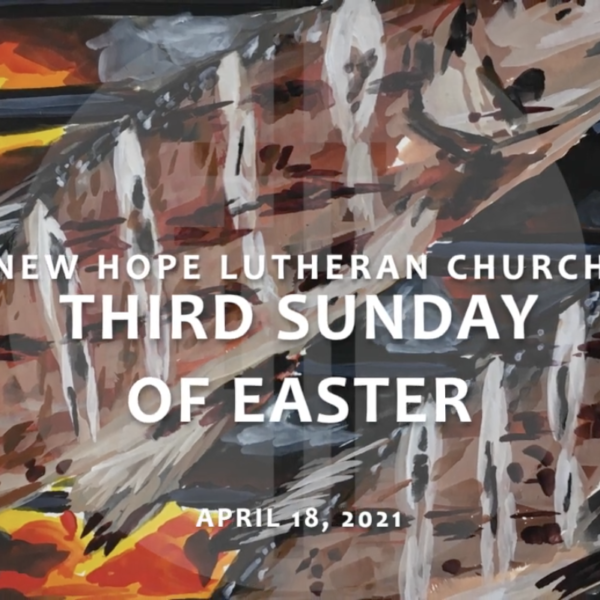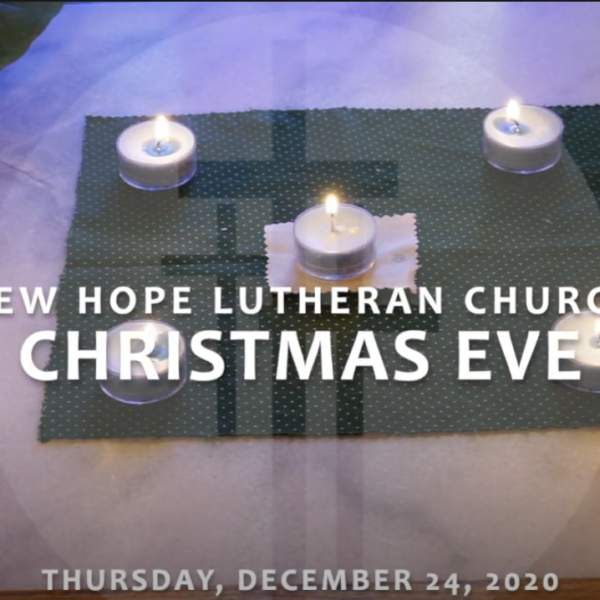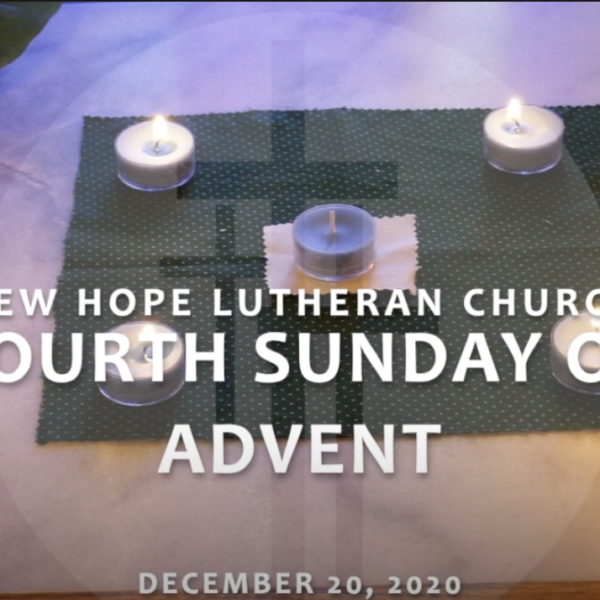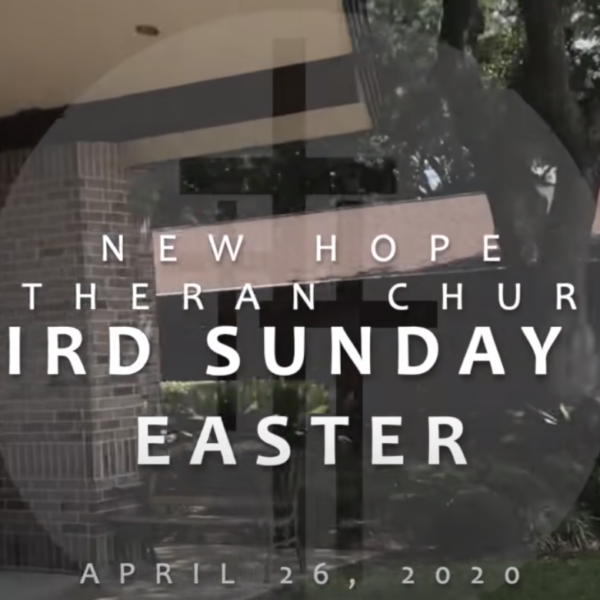Second Sunday of Advent 2021
Luke 3:1-6
1 In the fifteenth year of the reign of Emperor Tiberius, when Pontius Pilate was governor of Judea, and Herod was ruler of the Galilee, and Herod’s brother, Philip, ruler of the region of Ituraea and Trachonitis, and Lysanias ruler of Abilene, 2 during the high priesthood of Annas and Caiaphas, the word of God came to John son of Zechariah in the wilderness. 3 And John went into all the region around the Jordan, proclaiming a baptism of repentance for the forgiveness of sin, 4 as it is written in the book of the words of the prophet Isaiah,
“The voice of one crying out in the wilderness:
‘Prepare the way of the Lord,
make direct the paths of the Lord.
5 Every valley shall be filled,
and every mountain and hill shall be made low,
and the crooked shall be made direct,
and the rough ways made smooth;
6 and all flesh shall see the salvation of God.’”
———————-
Please pray with me this morning, church:
God of peace,
You are making your home among us
And calling us to be attentive to what you are doing.
Embolden us to join in this work with you.
Give us courage to help lay a foundation of peace
In which all are truly welcomed, truly valued, and truly affirmed.
Amen.
———————-
We put up our Christmas tree and most of our indoor Christmas decorations last week after worship. We put up our outside lights a couple of weeks ago before Thanksgiving, but things are really starting to look like Christmas around the Michaelis home.
And honestly, I know it’s a little out of order…I mean, yes, I am a liturgical purist and I know that Advent is a season of preparation and I know that Christmas doesn’t begin until December 24, but honestly…after the past couple of years, I’m not going to begrudge anyone for getting a head start on spreading a little holiday cheer. Plus, Christmas stuff is a lot of fun with a 2-year old running around. That, and truthfully, waiting to do Christmas stuff until actual liturgical Christmas just wouldn’t fly at my house. Look, I don’t make the rules, I just abide by them…
I’m especially grateful for our home this year. Like I mentioned last week, even after a lengthy 20 months in which I’ve become intimately familiar with every single square inch of our home…I’m deeply grateful for our place. Perhaps you can relate.
Our Advent series from the creative women at A Sanctified Art is called Close to Home. We’re exploring what makes a home feel like a home, how do we know when we’re close to home or far from it, and what does it mean that God has made God’s home here with us in the person of Jesus—Emmanuel—God with us. We’re plumbing the depths of our longing after God and our collective longing for our home, for our world, to be made whole, be made right, and be made well. With deep longing, we watch and wait for God. This is the patient and expectant anticipation of Advent.
Last week we focused on that feeling of homesickness. That kind of nagging feeling you get when you know something’s just not quite right, that longing after a hoped-for world in which things are as they should be, a world as God intends it. Last week, we named the reality that the fullness of God’s dream and God’s vision for our world is not yet where we are, but that we are on the way. We are working to build God’s promised future here and now in our midst.
This week we start getting to work on that building. And like every good building project, you start with the foundation.
Every so often, I’ll look out the windows in our living room and down into the side yard part of our backyard. Almost every single time, without fail, I’ll be immediately drawn to August 27 of 2017 and watching the rain continue to pour down and the river of water rushing down our side yard making its way to the street and watching the water level of those tiny rivers rise and rise and rise and come close, but ultimately, never get up to our house. And I remember that we were some of the lucky ones.
Watching rushing water creep its way closer and closer to the foundation of your house is an extremely anxious thing. Certainly not peaceful. Maybe you can relate. There’s this kind of feeling of dread, but also a sense of resignation, because at the end of the day, what are you going to do? You can’t, like, stop it from raining…
I was reminded of the importance of foundations during Harvey. And I continue to be reminded that a solid and sturdy foundation is critical to a long-lasting, healthy, and continually useful structure.
John the baptizer shows up in the wilderness making the way ready for Jesus. The author of Luke situates John very historically—“in the reign of Emperor Tiberias…Pontius Pilate, governor of Judea…Herod, ruler of the Galilee”—but also situates John very much in the lineage of the prophets; in fact, the author of Luke compares John to the prophet that Isaiah talks about, “the one calling out in the wilderness and preparing the way of the Lord.”
Both the gospel of Luke and Isaiah understand and point out that the prophet is not the main event, the prophet is someone who comes before, who makes ready. The prophet in the wilderness is a forerunner, one who lays the foundation. The prophet is someone who doesn’t direct people to themselves, but instead points outward, away from themselves, pointing toward something or someone else.
In this case, John the baptizer is proclaiming a baptism of repentance for the forgiveness of sin to all those who were coming out to him in the Judean countryside, but John is calling people beyond that and pointing them to Jesus. And in this season of Advent, when we wait and prepare with anticipation and expectation, how are you pointing people to Christ, church? How are you reflecting Christ in your words, actions, and thoughts? How are your neighbors seeing Christ through you?
The prophet is the one who goes ahead, who points to the one coming after them. The prophet prepares the way. The prophet lays the foundation for what’s to come.
Throughout our Advent series Close to Home there’s a movement…from a place of feeling lost, of not knowing where or what “home” is to a recognition and a realization that God is our home, and specifically our home is found in Christ…God made flesh, a tiny infant born to an unwed teenage mother, not in a gilded palace far removed from everyday folks, but instead born among livestock, born into impoverished conditions so that you would know that this God is intimately familiar with—knows—the most impoverished parts of yourself…the parts you prefer to keep hidden, the parts you try and cover up and gloss over, and the parts you don’t let very many others see.
This series is about both recognizing where our home is, and about the steps, we take to build that kind of home here and now in this place. When we pray earnestly, “Your kingdom come, your will be done, on earth, as it is in heaven,” it isn’t for some far off future…it means here…and now. And if we’re going to join God in making a home here, we’ve gotta start with a foundation.
Last week, we began with recognizing that deep longing inside ourselves for home—homesickness was the word we used. If we recognize that where we are is not where we want to be, we’re going to have to do what we can to join God in building that reality here. If we’re going to build a home where truly all are and feel welcomed, we’ve got to start with a solid and sturdy foundation.
It’s not enough to say “All are welcome”, we have to show it, church, prove it with our actions. Show me that truly all are welcome by the kind of foundation you put in place. Show me the solid and sturdy ground you stand on, and I’ll tell you if everyone’s welcome or not. Don’t just tell me I’m safe and beloved and affirmed…show me, demonstrate it to me.
You might think that the foundation of the home we’re building would be love, and normally, I’d agree with you, but then we wouldn’t be following the order of the weeks of Advent, so in this case, the foundation of the home we’re building is peace… But I don’t disagree with the foundation of this home being peace, either… Because peace can be a good place to start. Peace recognizes that we aren’t all the same, there are a diversity of views, but peace stands in the middle of that and says that the thing that draws us together is far greater than everything else that seeks to drive us apart. Peace is solid. Peace is hard, friends. Peace requires conversation and dialogue and a humble recognition that I may not always be right…but the thing that joins us together is greater than the things that seek to divide and separate us. The Reverend Doctor Martin Luther King, Jr. famously said this about peace: “True peace is not the absence of tension. True peace is the presence of justice.”
Peace is a hard thing to come by. But we don’t make peace all by ourselves.
We pray for God to bring God’s peace into the world, and we look for ways to participate in the work God is already doing. We look for ways to join in God’s work of building God’s home here.
Yes, we are preparing the way for the coming Savior, for the inbreaking of God into the world, but in the process of making ready, we’re also being attentive to the ways our own hearts and lives are being made ready, being attentive to the ways your own foundations are being shaped and formed. Church, it’s your own wayward paths that are being aligned, your own rough places that are being smoothed out.
It’s your own wilderness that God is transforming.
Peace is breaking into the world.
And like the buds on a tree branch last week, the signs are small, but they’re everywhere.
It’s our call to be attentive to them.
To notice them.
To use them as the foundation for the home we are joining God in building here in our midst.
Come, Emmanuel.

